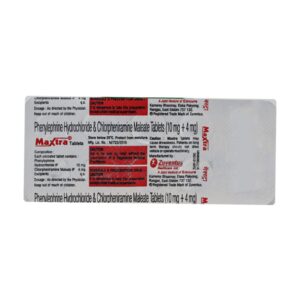Description
About Calshine P Oral Drops
Calshine P Oral Drops is a Vitamin that is used to regulate calcium and phosphate metabolism in children. This medicine is used to treat Vitamin D deficiency, and osteomalacia (softening or deforming of bones due to lack of calcium). Vitamin D deficiency occurs when your body has low Vitamin D levels and is caused due to inadequate nutrition, malabsorption, or lack of sunlight exposure.
Calshine P Oral Drops contains Vitamin-D3 (Cholecalciferol), a fat-soluble vitamin. It helps maintain blood calcium and phosphorus levels and the mineralization of bone. Calshine P Oral Drops aids in calcium absorption enabling bone growth and repair. It further prevents cartilage degeneration. Calshine P Oral Drops is also used to maintain a healthy immune system.
Calshine P Oral Drops may rarely cause certain side effects in your child such as constipation, increased blood calcium levels, increased calcium levels in urine, vomiting, and nausea. These side effects generally resolve over time. However, if it does not resolve, contact the paediatrician immediately. Calshine P Oral Drops should be given to your child only if suggested by your child’s doctor. The dose of the medicine will be decided by your paediatrician.
Calshine P Oral Drops should be avoided for your child if she/he is allergic to it. Keep your doctor informed about your child’s health condition including his current medications and medical history to rule out any side effects/interactions. Before administration, inform the paediatrician about all the OTC medicines including other vitamin supplements that your child is taking.
Uses of Calshine P Oral Drops
Medicinal Benefits
Calshine P Oral Drops contains Vitamin-D3 (Cholecalciferol). It is a fat-soluble vitamin belonging to the class of vitamins. It helps maintain blood calcium and phosphorus levels and the mineralization of bone. Calshine P Oral Drops aids in calcium absorption enabling bone growth and repair. It further prevents cartilage degeneration. Calshine P Oral Drops is also used to maintain a healthy immune system.
Directions for Use
Storage
Side Effects of Calshine P Oral Drops
- Nausea
- Vomiting
- Increased blood calcium levels
- Constipation
- Delay in teeth coming
Drug Warnings
Avoid giving Calshine P Oral Drops to your child if she/he is allergic to it. Keep your paediatrician informed about your child’s health condition including their previous medications and medical history to rule out any side effects/interactions. Before administration, inform the paediatrician about all the OTC medicines including other vitamin supplements that your child is taking. It is advised not to give more than the suggested dose of medicine. Also, inform your doctor if your child has liver or kidney-related issues before administration. Calshine P Oral Drops is intended for use in children. Hence, pregnant, and breastfeeding mothers should avoid taking this solution.
Drug Interactions
Drug-Drug Interactions: Calshine P Oral Drops has interactions with certain medicines and vitamins. Hence inform your paediatrician about your child’s complete medication history including OTC products for further prevention of side effects.
Drug-Food Interactions: No interactions found/established.
Drug-Disease Interactions: Inform your doctor before administering Calshine P Oral Drops if your child has any history of kidney or liver disease.
Habit Forming
Diet & Lifestyle Advise
- Include dairy products like milk, yogurt, cheese, or milk-based custard in your diet.
- Include the best dietary sources of vitamin D, such as fish liver oils and vitamin D–fortified milk.
- Snack on calcium-rich nuts like Brazil nuts or almonds can be given to your child.
- Avoid or reduce the intake of caffeine and soft drinks that inhibit calcium absorption.
Special Advise
Do not give cholecalciferol to a child without medical advice. Your child’s dose will depend on age, weight, diet, and other factors.
Disease/Condition Glossary
Vitamin D deficiency: It is a condition that occurs when a person cannot get enough Vitamin D through food and exposure to sunlight, which leads to vitamin D deficiency. It often leads to thin, brittle, or misshapen bones.
Osteomalacia/Rickets: It is a condition caused by softening and weakening bones in children due to inadequate vitamin D. Symptoms may include thickening of the ankles, wrists and knees, bowed legs, soft skull bones and, rarely, bending of the spine.






Reviews
There are no reviews yet.